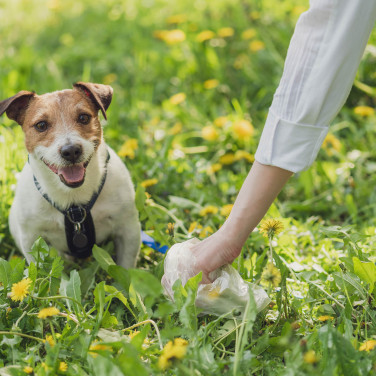SYMPTOMS
Why is my Dog Gaining Weight? Causes of Sudden Weight Gain in Dogs
페이지 정보
본문
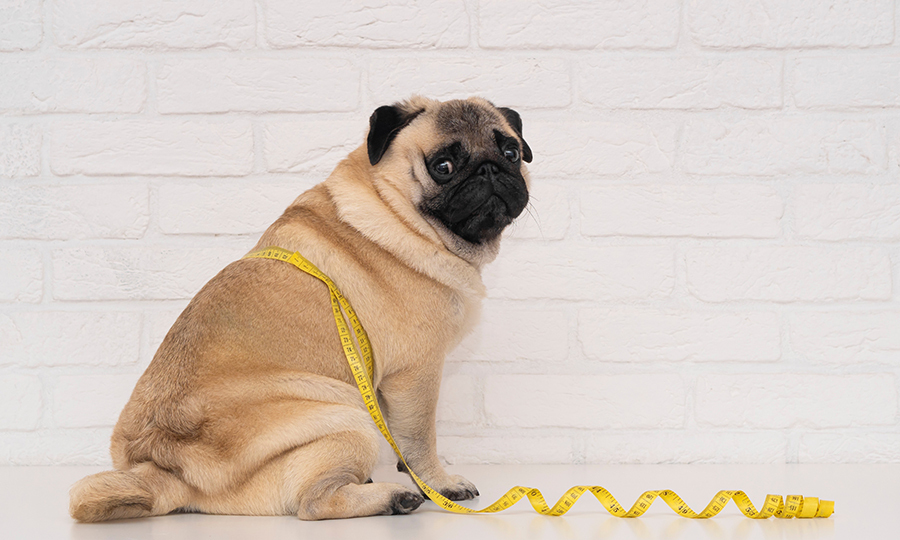
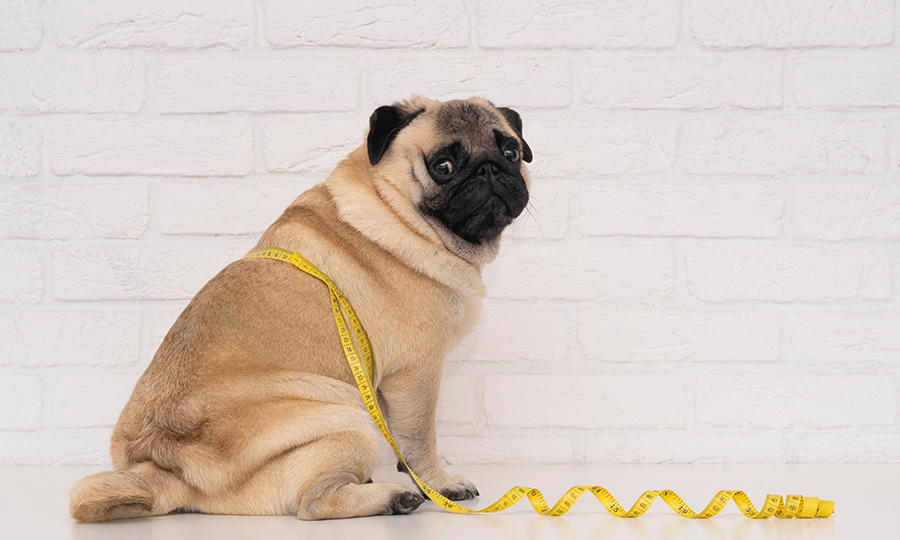
Sudden weight gain and obesity in dogs
There are various reasons behind a dog's weight gain, such as heredity, nutritional status, lifestyle, hormonal imbalance, fixed or unfixed, and overall health condition. However, the fundamental idea is that weight gain occurs when calorie intake exceeds the amount of calories burned daily.
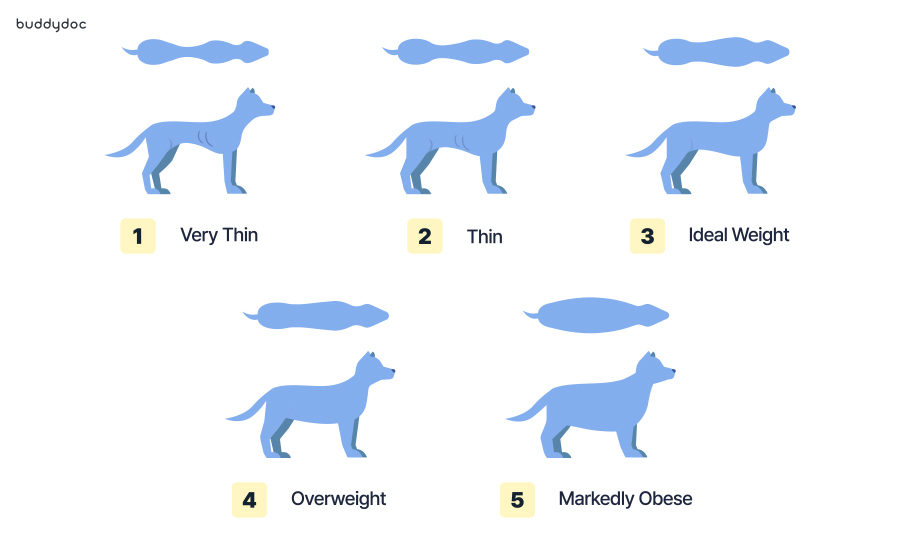
Obesity is one of the health issues that require recognition and management. It refers to a state in which excess fat is accumulated by more than 20% of normal weight. The easiest way to objectively evaluate obesity is through the Body Condition Score (BCS). Obesity can both be a sign of deteriorating health as well as be a precursor to a decline in health. Therefore, it is essential to address weight issues as an important health concern and address them sooner rather than later.
Causes of sudden weight gain in dogs
Weight gain occurs when the calories consumed are greater than the calories burned. The causes for this can be largely divided into general factors and disease-related factors. Sudden weight gain or obesity are mostly caused by common factors such as eating problems or changes in exercise habits, but in some cases, they can also be caused by disease.
Common causes of weight gain in dogs
-
Dietary changes
Dietary changes are one of the most common causes of weight gain. Frequent feeding of new treats, and human foods, can cause weight gain. In particular, human foods can increase the risk of obesity because they are usually high in sodium, irritating to the pet’s digestive system, and high in calories. An increase in the amount or frequency of snacks can also cause contribute to weight gain.
-
Change in lifestyle and environment
The risk of obesity increases if activity or appetite changes for various reasons, such as stress from a change in their environment or lack of exercise. Typically stress can increase cortisol levels in dogs which can result in muscle loss and a slower metabolism. The appropriate amount of exercise depends on the breed, age, and size, so it is recommended that you consult with your veterinarian to establish a suitable exercise plan for weight management.
-
Genetic factors
Certain breeds are known to be at higher risk of obesity, such as:
- Labrador Retrievers
- Cocker Spaniels
- Carin Terriers
- Dachshunds
- Shetland Sheepdogs
- Beagles
- Basset Hounds
- Cavalier King Charles Spaniels
- and more
It is important to learn about your pet’s breed and their genetic predisposed health risks to offer them the best outlook on life.
-
Fixed or not
Neutering also affects weight gain, with neutering increases the risk of weight gain as calorie consumption is reduced due to reduced metabolism.
Diseases that can cause weight gain in dogs
-
The thyroid secretes hormones that play a crucial role in regulating metabolic processes in the body. In cases of hypothyroidism, where hormone secretion decreases, the metabolism slows down, resulting in reduced calorie consumption and subsequent weight gain. Additionally, hypothyroidism may cause symptoms such as lethargy, weakness, alopecia, decreased appetite, and exercise intolerance.
-
When cortisol secretion increases, due to the hormone being secreted by the adrenal glands, it can result in metabolic control problems. One of the consequences of such a problem is the accumulation of fat in the belly, leading to pot belly and muscle loss. Hyperadrenocorticism can also lead to polyphagia, which in turn can cause weight gain as well. In addition to these effects, hyperadrenocorticism can be accompanied by other symptoms such as polyuria, polydipsia, and hair loss.
-
Heart and liver disease, tumors, etc.
If the blood is not circulating properly, which can be caused by heart and liver diseases, it may result in body fluids leaking into the abdomen, leading to the accumulation of ascites. This, in turn, can cause the belly to become convex and appear as if the pet has gained weight. You may mistakenly assume that the pet has put on weight, but in reality, the belly is filled with fluid that will feel like a water balloon when touched. It is crucial to seek medical attention promptly to diagnose the underlying condition causing this symptom.
-
Reaction to medication or drug
When drugs, such as steroids, are taken over a prolonged period, side effects can arise, including symptoms like Hyperadrenocorticism. If the medication leads to an abrupt increase in weight, consulting with a veterinarian to modify the dosage, switch to a different drug, or discontinue the medication may be necessary.
-
Orthopedic disease
Managing your pet's body weight is essential as a variety of orthopedic conditions, such as patellar luxation, cranial cruciate rupture, arthritis, and hip dysplasia, can make it difficult to move, leading to reduced activity and weight gain. This weight gain and obesity can create a cycle that exacerbates these conditions, making it even more challenging for your pet to move comfortably. Therefore, it is crucial to manage your pet's body weight to help prevent and alleviate these orthopedic conditions.
Common symptoms that accompany sudden weight gain
Pica is an obvious symptom when observed, but dogGradual weight gain, resulting from changes in diet or living environment, is a common occurrence that does not typically manifest in any other specific symptoms. However, in cases where weight gain is sudden and rapid or leads to other health issues, certain symptoms may arise. It is advisable to seek medical attention and undergo a thorough examination to determine the underlying cause of these symptoms combined, as they could be indicative of an underlying medical condition.s will often hide and eat foreign substances without the guardian knowing. Therefore, you may notice some signs that typically accompany or are caused by pica.
Some symptoms to look out for if your dog gains weight suddenly:
- Increased thirst/frequent urination
- Increased appetite
- Exercise intolerance
- Vomiting and diarrhea
- Constipation
- Lethargy
- Anorexia
- Breathing difficulties
The risk of obesity in dogs and when to see a vet for sudden weight gain
Being overweight or obese is not an immediate emergency, however, if this condition persists, it can significantly increase the risk of various health complications for your pet, similar to the effects in humans. Some of these complications may include gastrointestinal problems, diabetes, high blood pressure, and lameness caused by joint deterioration.
If you notice that your pet has gained more than 10% of their weight in a short period or if this is accompanied by any other abnormal symptoms, it is highly recommended that you take them to a hospital for an accurate examination. Early detection and prompt treatment can greatly improve the chances of managing any health issues that may arise from obesity.
How to deal with sudden weight gain in dogs at home
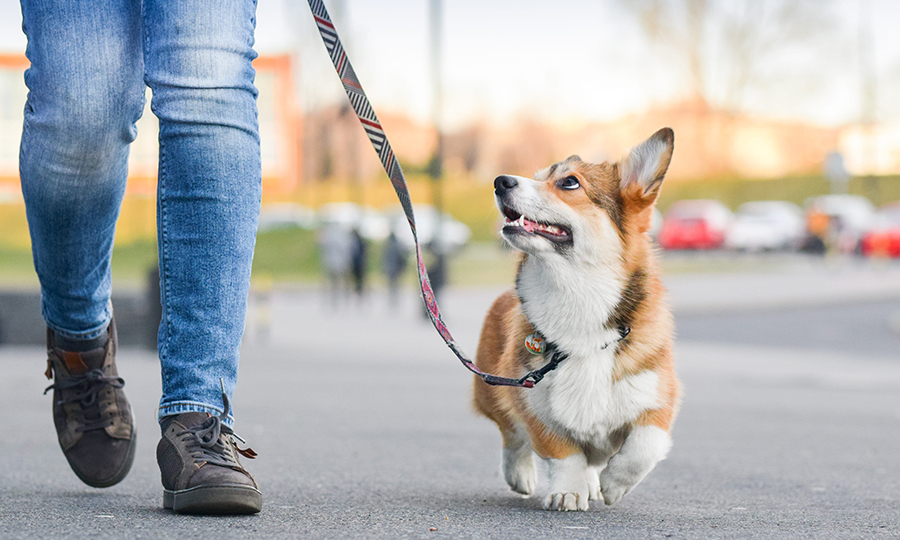
To address weight gain caused by common factors, adjustments made to both their diet and activity levels can be beneficial. A gradual approach to changing a pet’s diet is the safest and best approach, as losing weight too quickly can be harmful as well. The general aim should be losing 3% to 5% of your pet’s body weight per month.
Knowing your dog's daily calorie needs is crucial when trying to help them lose weight. Using a calorie calculator or following the recommended feeding amount for your pet’s breed and size can help you determine the appropriate daily feeding amount. Dividing their meals into more frequent and smaller portions can also help pets lose weight safely. Limiting snacks and human foods during the weight management period is also recommended. You can read our full guide on how to manage your pet’s weight here as well!
Dogs require regular exercise based on their breed, age, weight, and individual characteristics. Typically, 20 to 60 minutes of daily exercise is recommended, though this may vary depending on the dog. As each pet's living environment and contributing factors to obesity can differ, seeking assistance from a veterinarian to establish a personalized weight management plan can be helpful. If weight gain or obesity is suspected to be caused by underlying health conditions, visiting a veterinary hospital for an accurate examination is advised.
Diagnosing sudden weight gain and obesity in dogs
When you visit the hospital for sudden weight gain, your pet can undergo a Body Condition Score (BCS) assessment to determine if they are overweight or obese. However, identifying the underlying cause of obesity and screening for any associated illnesses may require several tests.
If you visit the hospital for weight gain and obesity, your veterinarian may ask you questions such as:
- What type of meals do you feed your dog?
- How often, how much, and what kind of treats are given?
- How much activity and play does your dog get every day?
- When did you notice your pet’s weight gain? (ie. gradual increase or sudden increase)
- Are there any other accompanying abnormal symptoms such as lethargy, loss of appetite, or polyuria?
- Does your pet currently have any medical conditions or are they taking any medications?
Your responses to these questions can help the veterinarian determine whether your pet’s weight gain is due to a general cause or a disease-related cause that may require further tests.
How are sudden weight gain and obesity treated?
To address weight gain and obesity in dogs, a weight management program through diet and activity is recommended. The veterinarian will first assess the dog's breed, age, weight, and activity level before creating a plan for the appropriate type and amount of food as well as an exercise plan. The ultimate goal of the program is for the dog to reach their ideal weight within six months, with a gradual weight loss of about 3% to 5% of their total weight per month. Your active support and consistency are essential in achieving these weight loss goals for your dog.
If the cause of the dog's weight gain is a disease, a treatment plan tailored to the specific disease will be established instead.
Prevention tips for weight gain and obesity in dogs
You can prevent weight gain from becoming a problem by first calculating the required calorie intake for your pet’s specific breed, size, and age. Paying attention to your pet’s habits and lifestyle to adjust their diet accordingly and engaging in daily exercise plays a key role in prevention as well.
Find out more about your dog’s symptoms and diseases on the Buddydoc app!
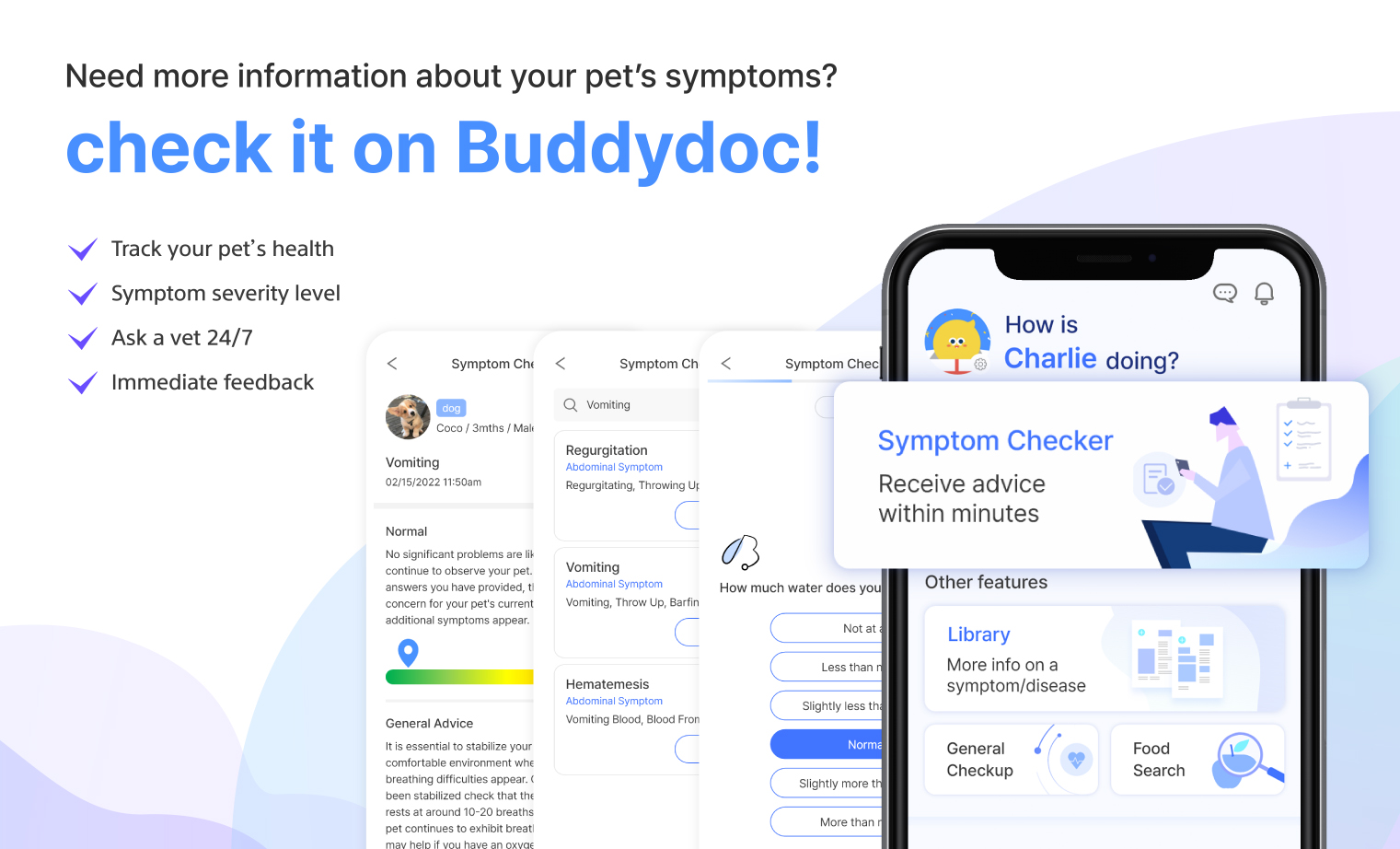
The Buddydoc library is filled with everything you’d want to know about each symptom and disease your pet may experience. If you would like to find out more about the causes, signs, treatments, preventions, and more for your dog’s disease. Try out the Buddydoc app and search for your pet’s symptoms or diseases in the Buddydoc library.






